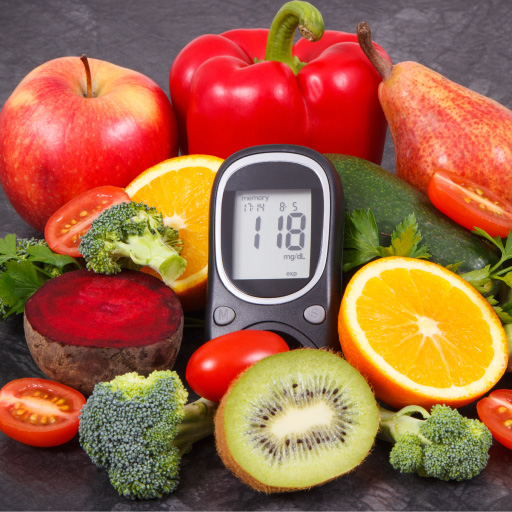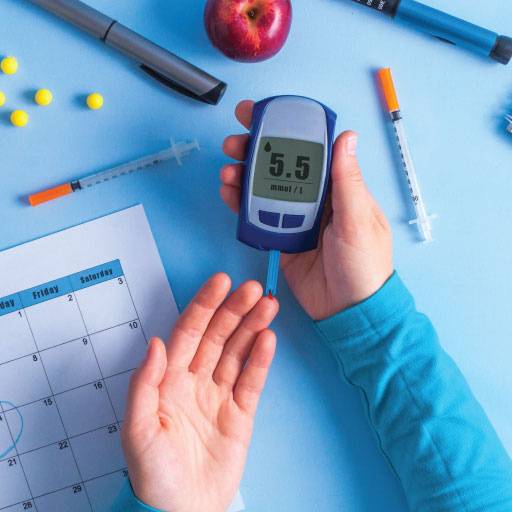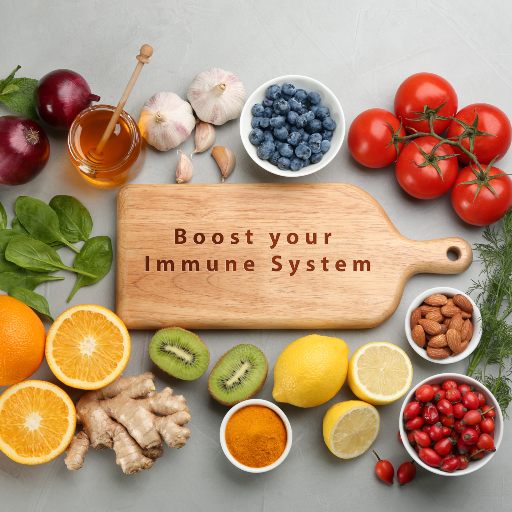अच्छा-संतुलित आहार विटामिन और मिनरल से भरपूर होता है. शरीर के सामान्य रूप से काम करने के लिए ये सूक्ष्म पोषक तत्व ज़रूरी हैं. इनकी कमी वाले आहार से शरीर में विटामिन की कमी हो सकती है, जिससे आपके शरीर में अनचाहे लक्षण दिख सकते हैं. मानसून के आगमन के साथ ही, विटामिन लेना ज़रूरी हो जाता है. विटामिन C सर्दी और फ्लू से बचाव के लिए तेज़ी से इम्यून सिस्टम को मज़बूत बना सकता है. मानसून के दौरान पेट और आंतों के संबंधित समस्याएं होने लगती हैं. ऐसे में केले खाना आपको सेहतमंद रहने में मदद कर सकता है, क्योंकि इसमें बहुत से विटामिन और मिनरल होते हैं. मौसमी फल ज़्यादा नमी के कारण होने वाले इंफेक्शन से लड़ने में मदद कर सकते हैं. मानसून के खास फल, जैसे- जामुन आदि एंटीऑक्सीडेंट, विटामिन, आयरन और फोलेट से भरपूर होते हैं.
इनके बारे में जानें:
- विटामिन क्या होते हैं?
- Signs and symptoms of vitamin A deficiency?
- विटामिन से भरपूर भोजन
- विटामिन की कमी के लक्षण क्या हैं?
विटामिन क्या होते हैं?

Vitamins are organic compounds present in small amounts in natural foods. They are classified into fat-soluble (vitamins A, D, E, and K), which dissolve in fat and accumulate in the body, and water-soluble (vitamin C, B-complex, and folate), which are not stored in the body. There are 13 types of vitamins, and each is significant in its own way.
Signs and symptoms of vitamin A deficiency?
Vitamin A is also known as the vision vitamin, as it’s responsible for maintaining good eyesight, healthy skin, and a robust immune system. But what happens when we don’t get enough of this essential nutrient? Well, that’s where signs and symptoms of vitamin-A deficiency come into the picture.
-
Dry Eyes and Conjunctival Issues:
Vitamin A deficiency can cause your eyes to feel dry, itchy, and irritated, which could be due to a lack of vitamin A. This nutrient helps keep our eyes moist and protected. Without adequate vitamin A, the conjunctiva—the clear, thin tissue covering the front of the eye—becomes dry and inflamed, leading to a condition called xerophthalmia. In severe cases, the conjunctiva can even develop spots or become bumpy, impairing vision further.
-
Slow Wound Healing:
Vitamin A deficiency affects not only our eyes but also our skin. One of the skin-related symptoms of vitamin A deficiency is impaired wound healing. Vitamin A is very good at maintaining healthy skin cells. Without it, the regeneration process slows down, and wounds take longer to heal. So, if you notice that your cuts are taking an unusually long time to recover, get your vitamin A levels checked.
-
Dull and Dry Skin:
Healthy, radiant skin often reflects a well-balanced diet and adequate nutrient intake. On the flip side, vitamin A deficiency can manifest as dry, flaky, and rough skin. This happens because vitamin A is essential for the production of sebum—an oily substance that keeps our skin moisturized and supple. Without enough vitamin A, the skin’s natural moisture barrier weakens, leading to a lackluster complexion and potentially even the development of conditions like acne or eczema.
-
Compromised Immune Function:
In addition to its role in vision and skin health, vitamin A is vital for maintaining a robust immune system. It helps the body produce specialized immune cells and antibodies that defend against infections. A vitamin A deficiency weakens the immune response, making individuals more susceptible to frequent infections, particularly respiratory infections like colds, flu, and even pneumonia.
विटामिन से भरपूर भोजन
Here are some vitamin-rich foods you can include in your diet.
- Vitamin A: Fish oil, shellfish, and common fruits such as ripe mango, cantaloupe melon, and papaya are rich in vitamin A. Some dairy products also fall under this category. Vegetables, including carrots, sweet potato, pumpkin, spinach, and lettuce, can provide a high nutritional value.
- Vitamin B: Whole grains, poultry, meat, fish, legumes, green vegetables, nuts, and seeds are good sources of the vitamin B complex.

- विटामिन C: पके हुए खाने की तुलना में ताज़े फल व सब्जियों में विटामिन C की अच्छी मात्रा पाई जाती है. यह विटामिन अमरुद, कीवी, लीची और खट्टे फलों जैसे-नींबू और संतरे के अलावा पपीता, अजमोद, ब्रोकोली और स्ट्रॉबेरी में भी पाया जाता है.
- विटामिन D: पोषक तत्वों का यह स्रोत ट्यूना, सैल्मन जैसी वसा वाली मछलियों और कॉड लिवर ऑइल, अंडे की जर्दी (Egg yolk), चीज़ और फोर्टिफाइड अनाज में पाया जाता है.
- विटामिन E: यह विटामिन सूरजमुखी के बीजों, ब्रोकोली, पालक, बादाम, नट्स (मूंगफली और अखरोट), साबुत अनाज और दूध में पाया जाता है.
- Vitamin K: Foods rich in vitamin K are cooked spinach, fresh parsley, broccoli, cabbage, fish, cauliflower, eggs, and sprouts.
विटामिन की कमी के लक्षण क्या हैं?
Here are the common symptoms of vitamin deficiencies apart from vitamin A:
- Vitamin B complex: This is a group of 8 nutrients (vitamins B1, B2, B3, B5, B6, B7, B9, and B12). These directly affect your brain function, energy, and cell metabolism. Some common symptoms of vitamin B deficiencies include mouth ulcers and lesions in and around the mouth due to insufficient intake of riboflavin.
- Vitamin C: A deficiency in vitamin C can weaken and inflame your gum tissues, causing bleeding. Such inadequacy results in easy bruising and slows down the rate of collagen formation, causing wounds to heal more slowly. Vitamin C insufficiency can also lead to osteoporosis and an increased risk of fracture.
- Vitamin D: If you frequently fall ill or get infections, have muscle weakness, joint pain, fractures, depression, type 1 diabetes, or experience slow wound healing, these are the common symptoms of vitamin D deficiency.
- Vitamin E: Vitamin E deficiency can affect our nervous system, leading to problems with balance and coordination. This can make simple tasks difficult, like walking or picking up objects. If you frequently stumble or feel off-balance, it might indicate a vitamin E deficiency. This vitamin deficiency can also cause muscle weakness, vision deterioration, and weakened immunity.
- Vitamin K: If you frequently experience bleeding gums while brushing your teeth or spontaneous nosebleeds, get your vitamin K levels checked. Insufficient vitamin K can weaken blood vessels, leading to fragile gums and increased susceptibility to nosebleeds. It can also cause poor bone development, osteoporosis, and an increased risk of cardiovascular diseases.
Watching out for these symptoms of vitamin deficiencies can help you diagnose diseases faster!
Stay tuned to the Activ Living Community. Keep up to date with the latest health tips and trends through expert videos, podcasts, articles, and much more in nutrition, फिटनेस, सचेतन, और लाइफस्टाइल से जुड़ी बीमारियां like Asthma, Blood Pressure, Cholesterol, and Diabetes.
You may also be interested in the following blogs:
- विटामिन D की कमी क्यों होती है और आप इसे कैसे रोक सकते हैं?
- विटामिन B12 के लाभ: विटामिन B12 के 3 कार्य
Popular Searches
How to lower blood pressure | Fruits good for liver | Unhealthy foods | रागी के लाभ | बेसल मेटाबोलिक रेट | हाई ब्लड प्रेशर के लिए एक्यूप्रेशर पॉइंट्स | Ayurvedic medicine for blood pressure | How to control cholesterol at home | Homeopathy for Asthma | Biological Age | Home remedies for TB | Natural beta blockers | Negative effects of internet | Types of walking | ब्लड प्रेशर कैलकुलेटर | ब्लड शुगर कैलकुलेटर | BMI कैलकुलेटर





 1800-270-7000
1800-270-7000











